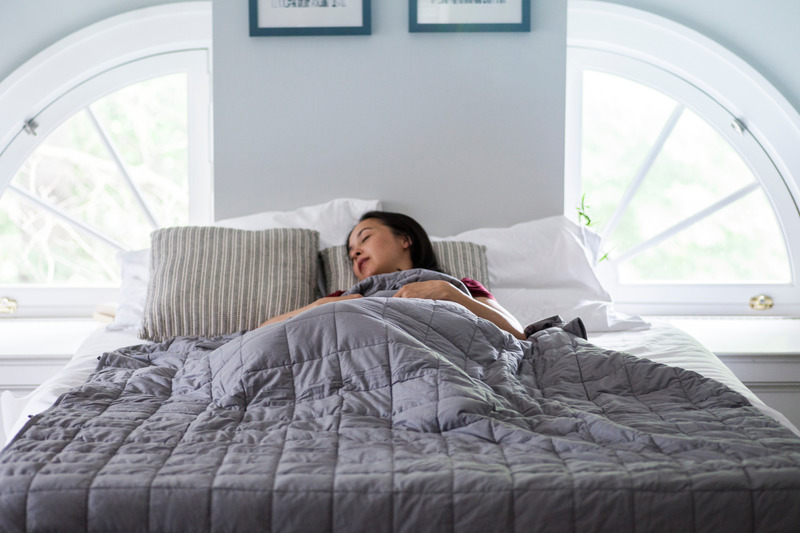
If you’ve been diagnosed with sleep apnea, you’ve probably heard all kinds of advice thrown at you. From snagging a CPAP machine to changing what side you sleep on and turning on a humidifier, everyone has an opinion. So, what about weighted blankets?
Once considered a niche product, these heavy comforters have gone mainstream, promising everything from better sleep to reduced anxiety. But do they help with sleep apnea? Continue reading to see what they do, what they don’t, and how they might fit into your nighttime routine.
What Is a Weighted Blanket?
Weighted blankets are comforters designed to apply gentle, even pressure across your body, a concept known as deep pressure stimulation. This sensation is supposed to mimic the feeling of being hugged. According to the American Academy of Sleep Medicine, this can help calm your nervous system, reduce stress hormones, and promote relaxation.
They’re often used to help with anxiety, ADHD, autism, and general insomnia, but more people with sleep apnea are now wondering if these blankets could help them too. Unfortunately, science is still on the fence.
Possible Pros of Weighted Blankets for Sleep Apnea
While a weighted blanket won’t treat sleep apnea directly, it has shown some promise in helping in other ways, such as:
- Reducing nighttime anxiety that can lead to apnea episodes
- Improving sleep quality by reducing tossing and turning
- Helping with comorbid insomnia that can ruin bedtime routines
In short, a weighted blanket could be helpful as a supplement when combined with more effective treatments. It’s not a replacement!
Weighted Blankets Aren’t for Everyone
For some people, weighted blankets can hurt more than they help. Those with certain medical conditions, like central sleep apnea, severe obstructive sleep apnea, or breathing-related issues such as asthma or COPD, may not see any benefits. In fact, adding weight could worsen symptoms!
It’s always best to talk to your sleep dentist if you’re unsure whether a weighted blanket is safe for you.
Should You Use a Weighted Blanket?
Weighted blankets won’t cure sleep apnea, but for some patients, they may support more restful, anxiety-free sleep, especially when used alongside other, more proven treatments.
If you’re curious, try one out, but make sure to choose the right one. On average, you should only use a blanket that’s about 10 percent of your body weight. It’s also best to avoid overly thick fabrics that trap heat or restrict airflow.
Sleep apnea is a serious condition that requires medical or dental intervention, but that doesn’t mean a weighted blanket can’t be your sidekick. If you’re struggling to get a good night’s rest, talk to your sleep dentist about your options. A better night’s sleep might be one blanket away!
About the Author
Dr. Jennifer Bragg earned her dental degree from the Medical College of Georgia and is a Diplomate of the American Board of Dental Sleep Medicine. She helps patients in Cumming find restful, restorative sleep through oral appliance therapy and works closely with physicians to provide effective care for sleep apnea and related conditions. Call (470) 281-9905 to schedule a sleep apnea consultation at Sleep Forsyth Dental Sleep Medicine or visit our website to explore other services.

